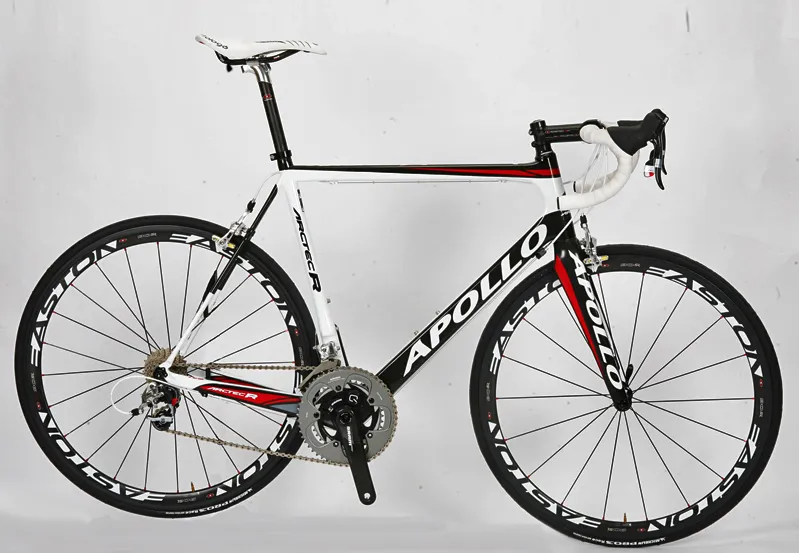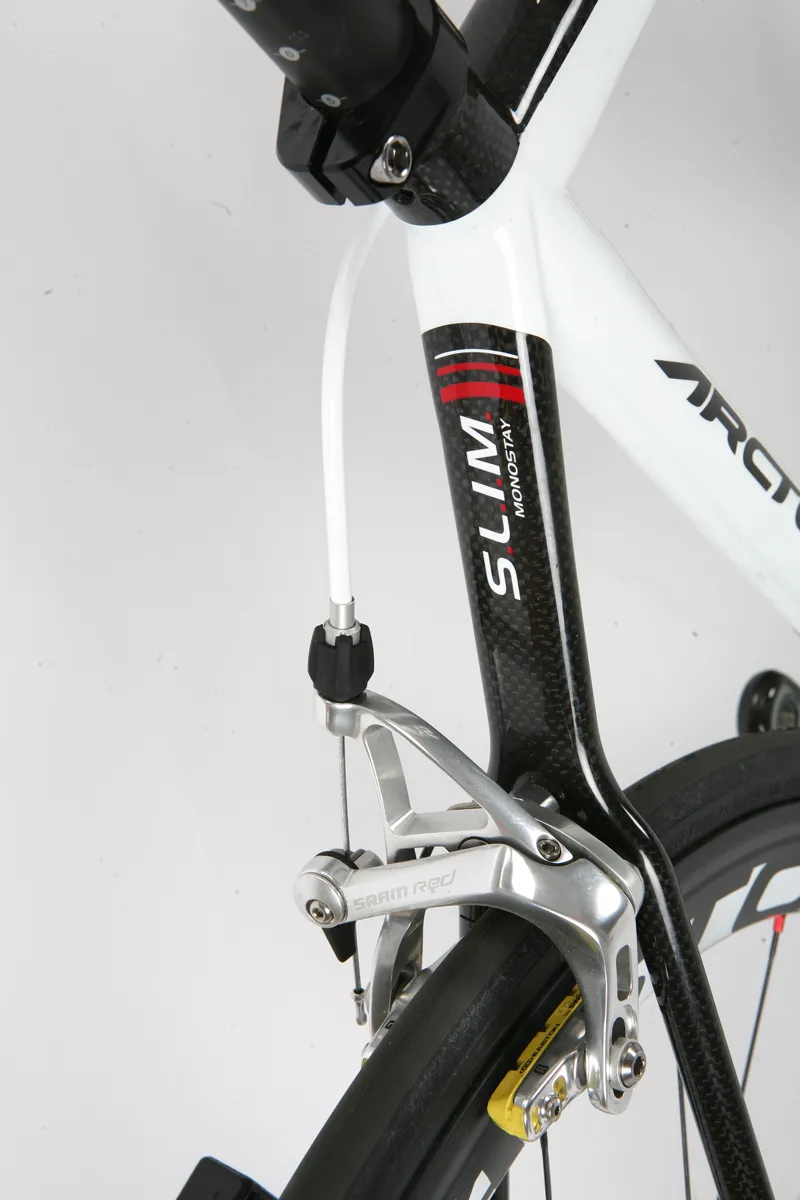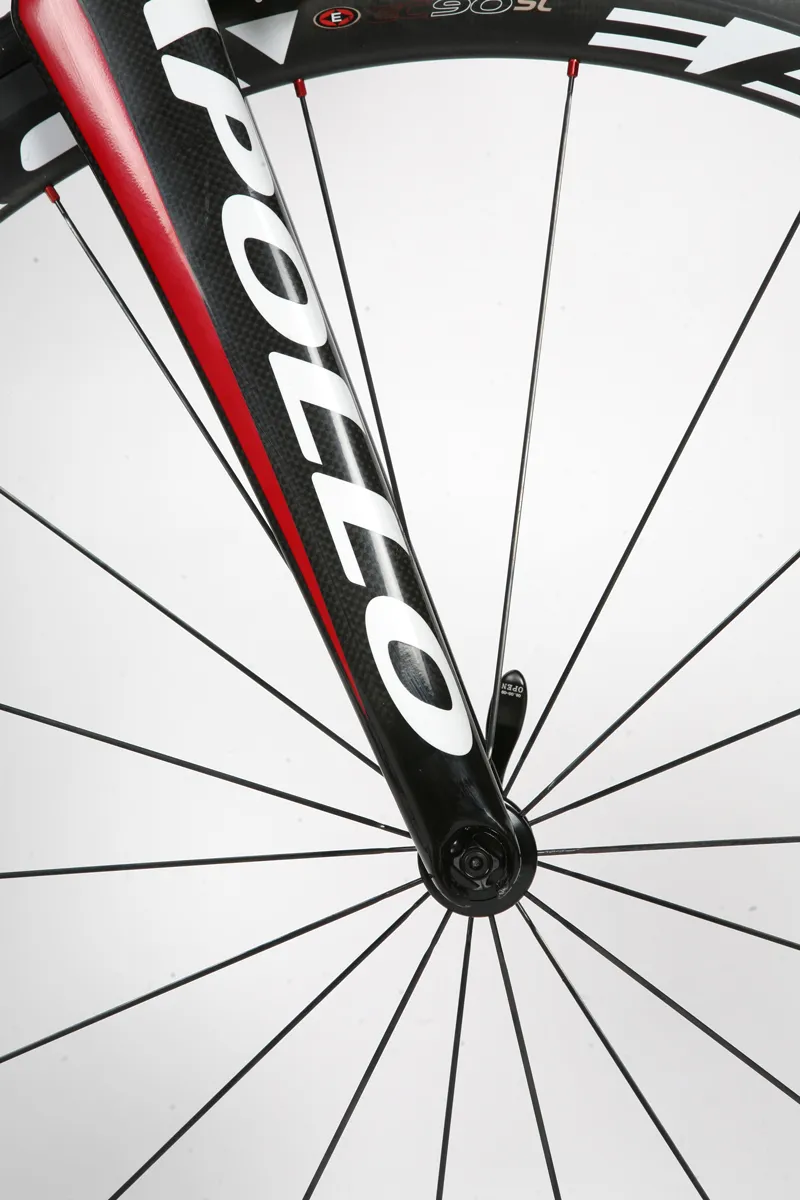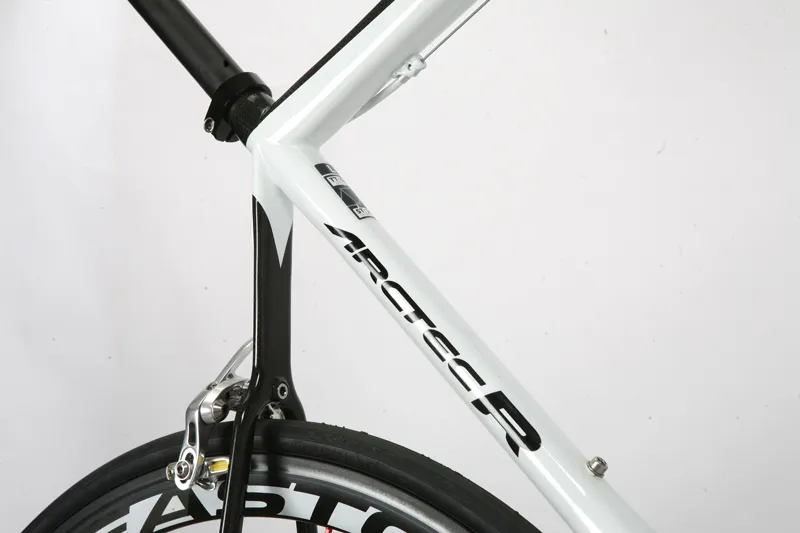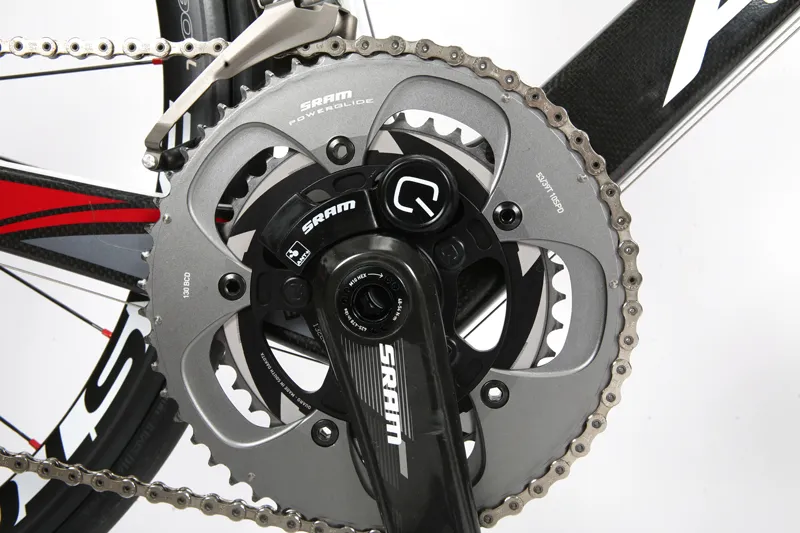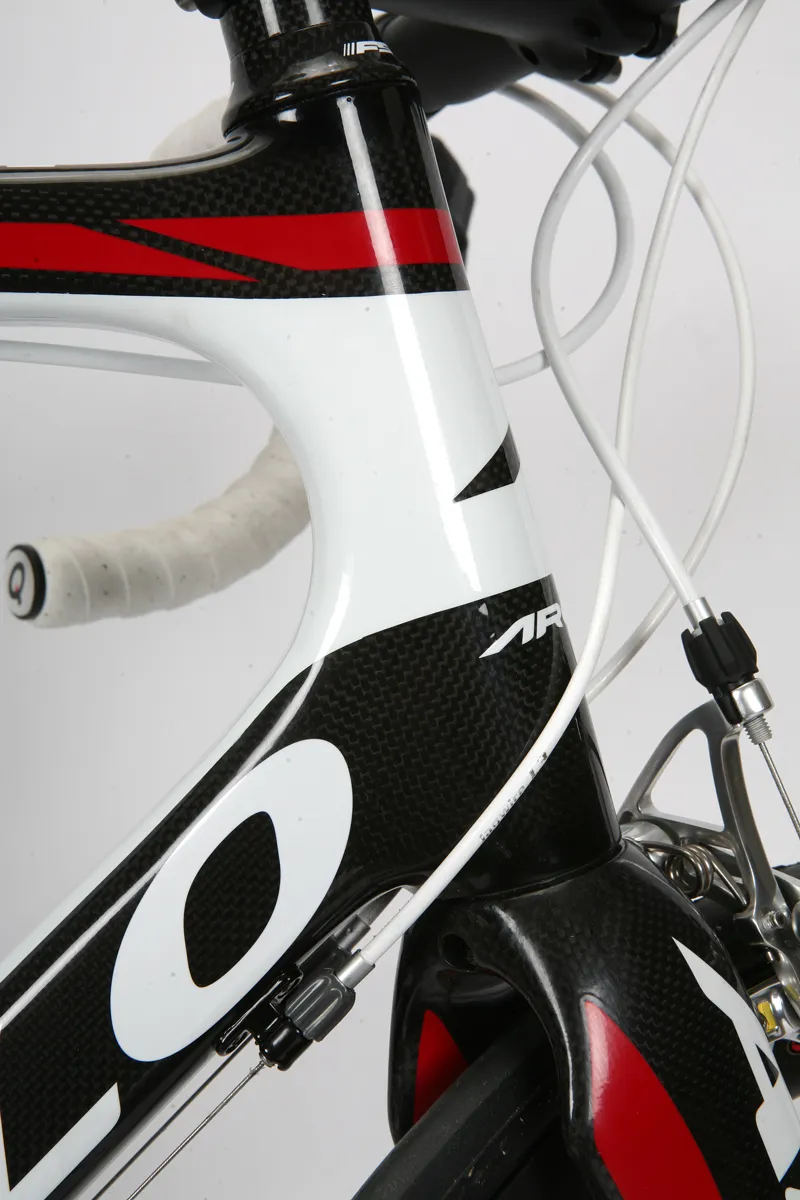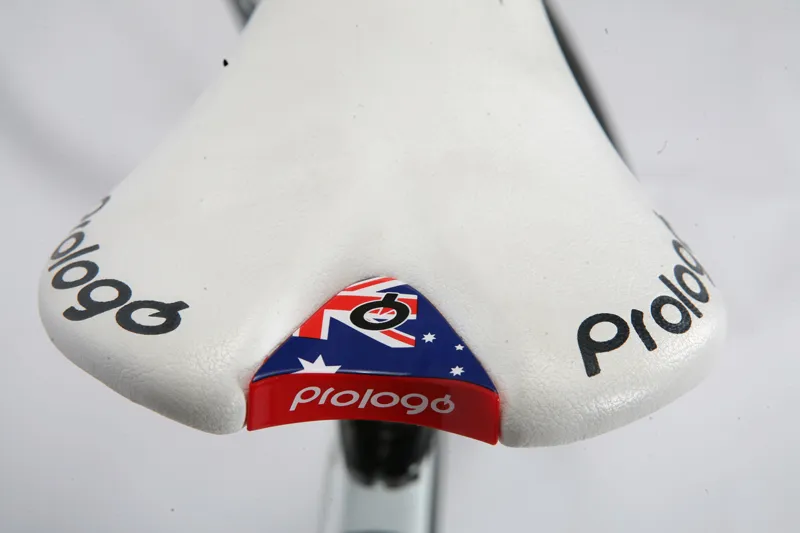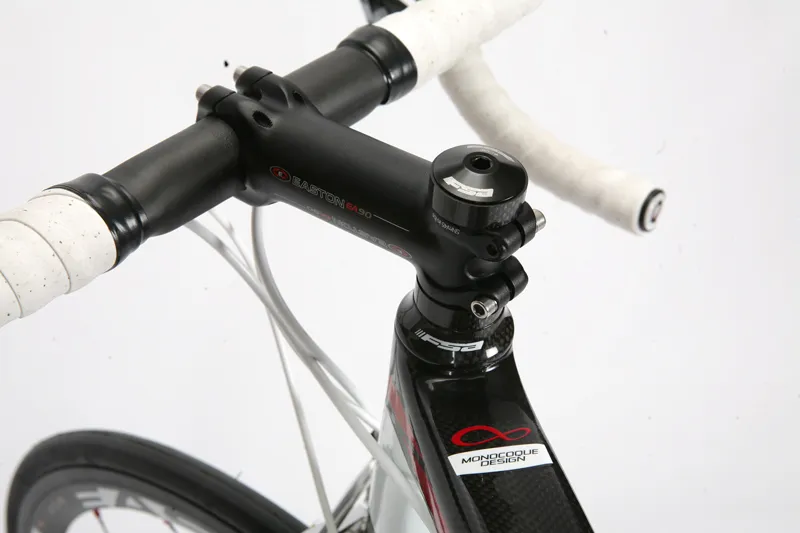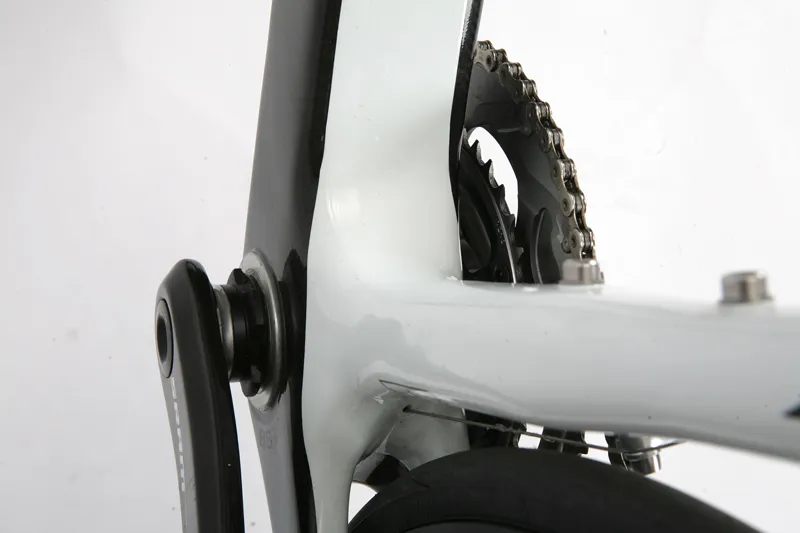Let's get one thing out of the way: this isn't the type of Apollo you'd see if you walked into a branch of Halfords. They may share their name with the British high street chain's own-brand bikes, but Apollo are an iconic Australian company established more than 30 years ago.
Until a few years ago, they held a large market share but weren’t a brand many serious cyclists would consider when choosing their latest race bike – American readers, think Huffy, and British readers, think Raleigh. This all began to change in 2009 when Apollo were bought by New Zealand triathlete Simon Burke, who employed new designers and changed the manufacturing process. The result was that Apollo changed from making average bikes to making extremely good bikes.
The Arctec R on test here is their flagship model and is the bike of choice for the Victorian Institute of Sport, a feeder for the Australian Cycling Team. Apollo are now exporting their bikes – they're available in Japan and Hong Kong, and negotiations are underway with American distributors – and if they continue to produce machines of this quality, they could become serious international contenders in the not-too-distant future. The Arctec R is a comfortable and well balanced package, with lots to like.
Ride & handling: Fast and responsive but comfortable enough for all-dayers
The Apollo Arctec R is a very comfortable and balanced bike. The comfort comes largely from the seatstays, which are very thin. Cervélo were pioneers of this type of stay, at least in carbon fibre, and more manufacturers are coming around to their way of thinking. The stays on the Arctec have their own unique, super-thin shape.
Frame makers have being tinkering with the balance between stiffness and comfort for some years now, looking for the ‘perfect bike’. In some ways, the frame of the Arctec comes pretty close to that ideal. It's fast and responsive, while still maintaining an element of comfort – something the Italian bike manufacturers manage very well.
Apollo are marketing the Arctec R as a race bike, but many ‘pure’ racers would want something a bit lower at the front end and a bit sharper in feel. When you really put the power down on this bike, you don’t have that electric feel through the frame that you get with a really, really stiff steed, even though you may still be maintaining the same speed.
This is because the upper portion of the frame is notably less stiff than the large down tube and oversize BB30 bottom bracket. This is logically what frame builders should be aiming for – power to the rear wheel and comfort to your rear end. This comfort factor means that if you want a fast bike for a sportive, handicap race or other distance event, then the Arctec would be perfect. It's stiff enough to hold full pace and the short drop to the bars will keep your back happy.
At 6.78kg (14.95lb) for the large size, the weight is more than respectable, especially considering the Easton EC90 carbon clincher wheels that come as standard. It’s possible to go too deep with carbon rims – making descending in sidewinds a nerve-wracking experience – but the EC90s at 40mm are a good bet. They were the perfect complement to the Arctec’s stability, particularly on long, fast descents – once wobble in the rear hub had been sorted
Heavier riders, who run a higher tyre pressure, will enjoy how well these wheels roll and how well the entire bike stays up to speed. Its inherent stability means the Arctec R corners well, although we did feel once or twice that we had to push through the wider corners, to maintain pace. The low weight of the package means we had no trouble at all when climbing, although again, a bit of mental adjustment was needed due to the lack of sharpness coming through the stays. Short, sharp hills were handled well out of the saddle, but longer hills meant steady grinding was necessary.
Frame & equipment: Well balanced frame plus race-ready spec
The Arctec R's frame is a monocoque design that fully utilises the BB30 bottom bracket design by stacking a whole lot of carbon in that area for extra. Adding to this is a pair of slightly shorter than usual chainstays, which results in a shorter than usual wheelbase, in this case 1,027mm for the large size. You might think this would make the Arctec R twitchy when riding, but not so. We found it to be a very well balanced bike.
You can tell by the components on this bike that Apollo are aiming it at racers, or at least the weekend warrior who's looking for a professional-level machine. SRAM Red is mated with the finest Easton carbon bits and a Prologo Scratch saddle, with an Australian flag detail. If you’ve never ridden a Scratch, do yourself a favour and give one a go. We were also pleased to see Michelin Pro3 race clinchers fitted instead of a heavy mid-range tyre. Thank you Apollo!
Perhaps the most interesting component is the Quarq power meter, which comes as standard. Quarq meters use the ANT+Sport network and can be read using Garmin and CycleOps readers. You can’t at this stage use an SRM but that may change with Quarq’s takeover by SRAM. Very few bikes come with power meters already installed, so this makes Apollo something of a leader, particularly as this bike is only A$8,999 with the Quarq installed. It'll be interesting to see whether other bike manufacturers follow their lead.
The one downside of the component spec is that the Easton EC90 SLX bar doesn’t seem to have been made with SRAM Red in mind. The sweeping arc of the gear lever continually hit the drops and it was hard to get a comfortable position and still use the DoubleTap effectively.
